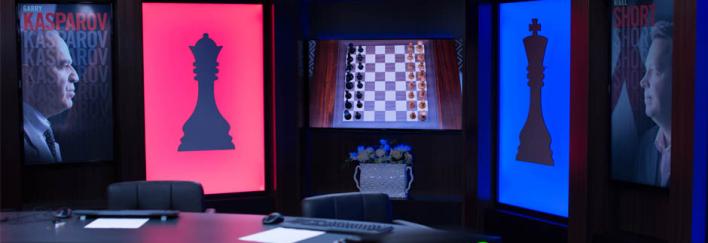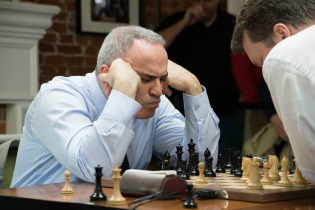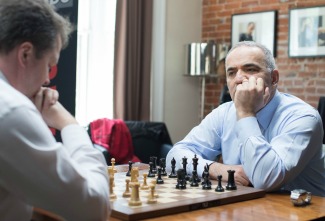
By GM Alejandro Ramirez
I remember it rather clearly, though it was over ten years ago. I hadn't moved yet to America, and at that point I wasn't even sure that I would. I was sitting in my bedroom back in Costa Rica, watching the Topalov-Kasparov game. Kasparov would win Linares even if he lost, which he did... quite typical actually, Kasparov dominating a tournament. And then the news broke out: Kasparov was retiring.
In Spanish he is known as the Ogre from Baku, if there was an antonym for “poker-face” it would be Kasparov. When I was growing up his name would be in every book, in every magazine, his games were always the best, the tournaments were always his – the news would focus on who got second place. I had been a grandmaster for a little over a year, and the greatest player in history had just retired.

I had the pleasure of watching Kasparov live once before, it was in the 2002 Bled Olympiad. His presence over the board was always a clear indication of his dominance over the chess world. He led Russia into a clean gold medal – his individual result was a brilliant 7.5/9. When he retired I simply couldn't believe it.
The Short-Kasparov match this weekend was thrilling. It was an opportunity to see him play against his long time rival, a chance to see if Kasparov still had it. And boy, did he show us. Being in the commentary booth with Maurice Ashley was a delight. We were trying to make sense of the games, without the assistance of an engine. Kasparov kept blaring out sacrifices, pawn pushes, attacks and initiatives.
Short seemed to have a rough first day. He dodged some bullets in the rapid, flagged Kasparov and lost the other three games. He was jet-lagged, true, but Kasparov was in his element. It was as if time had not touched him, or perhaps, as Brian Jerauld said, "gold doesn't rust." His tactics were sharp, his killer instinct spot on. That typical aggression based on sound positional principles that made him the most feared player in almost two decades was on the board.
The second day was simply a massacre. 5-0, no one could have seen it coming. After every win we could see that Kasparov did not think for a second of letting his prey have any wiggle room. A positional crush here, a sacrifice there; attack, attack, attack.
Chess has become a great scholastic tool – the advantages to k-12 children of learning chess are numerous. It has also become a sport -- with top level tournaments around the world and rigorous schedules -- as well as a science, with grandmasters studying for hours on end with supercomputers to find new ideas and novelties. But this weekend, Kasparov reminded me, reminded all of us, that chess is also an art.


